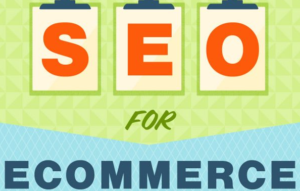E-commerce is a large battlefield for many businessmen, especially for starting entrepreneurs. It is no doubt that creating a search engine optimization (SEO) strategy can be a strenuous activity and require a lot of attention to be finished. In the world of e-commerce SEO strategies, visibility is everything.

Without being visible to your potential consumers, your business might not grow and lose a lot of revenue from this.
A search engine optimization strategy is established by businessmen as a competition where you, as an entrepreneur, are battling with co-entrepreneurs for the most visibility online.
This is particularly true for the first page of Google, Bing, or Yahoo. Most people browse within the first page of any search engine.
These netizens go beyond the first page when they are looking for a specific product or information. The average consumer only looks at the first five listings on a result page.
Being a part of the top listings can give you many potential consumers, which is why you need to spy on your online competitors. If you’re not part of it, you are missing a lot.
If you’re looking to improve your search engine rankings and be on the top of the results page, you can follow these tips to further improve your business’ strategy.
Check your site structure
First of all, you should check your website structure. Every site structure plays a necessary role in building the user experience or UX, as well as where you should rank in the search engine results page.
Each website should be made professionally to establish the right branding for your business online. One flaw made by most businessmen is making their online stores “too cute” up to the point where the site has many features that are not needed by the business.
A site for your online store is ideally simple, easy to navigate, and consumer-friendly. The single product page should be at a maximum of three clicks away from the home page.

With this proximity from the home page, it can help convert many visitors to buyers of your service or product. The more clicks it needs to get to the product page, the lower the conversion rate will be.
A site with great structure can help Google easily arrange all of your store’s products. Having a simple and systematized site can satisfy your customers and the search engines.
Optimize your keywords
Next, you need to use your site’s keywords on your website as much as possible. You need to settle on which keywords you want your site to rank on search engines, and it is needed to be optimized in your site.
The site should use the keywords as frequently as possible on your website or at least on the page you want to rank high on search engines.
Most likely, these desired keywords should be seen in the website title, web page title, headers, subheaders, URLs, meta-tags; basically, a very important part of your website that your potential consumers might read.
Also, these keywords should be implemented not only in the content of the site but also in the source code to rank in search engines.
Take advantage of the product page
When it comes to your product page, there are lots of ways to up your game in the search engine rankings. First, the URL can be helpful if it is short and concise enough to incorporate your target keyword.
Next, the header tags which are the words with a large font that are usually the title of the page should contain the target keyword of your product page.
Product descriptions are also a great way to give you an edge in the search engine results pages. It helps search engines to give more details about your product.
It should be thorough enough to answer any questions that may arise from the product details. Also, don’t forget to include your keywords in this part.
Image optimization is another way to boost your SEO rankings, and there are two steps for this. The first step is to have at least one of your images’ filenames should contain the target keyword.
Then lastly, the target keyword should also be part of your alternate text for your image. Metadata should be a max of 160 characters and also include your target keyword in the description on every product page.

